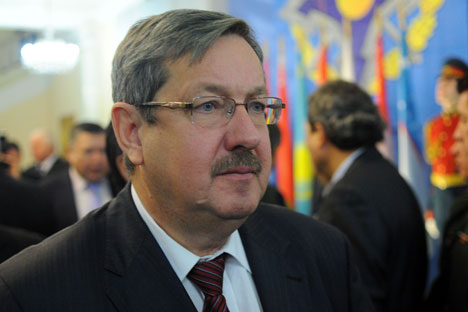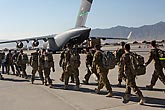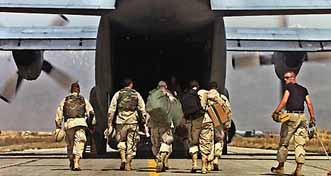Neighbors prepare for the collapse in Afghanistan

Igor Lyakin-Frolov: "The most favorable scenario is assumed to be that the current regime is retained only in Kabul and most of the provincial capitals, with the support of the United States and NATO troops." Source: ITAR-TASS
In anticipation of the imminent United States withdrawal from Afghanistan, Russian Ambassador to neighboring Tajikistan Igor Lyakin-Frolov told Kommersant about what role the 201st Russian military base could play should the situation deteriorate.
Kommersant: Russian experts believe the most likely scenario in the situation after the withdraw of NATO from Afghanistan is the Taliban’s return to power or civil war. In your opinion, what is the most likely scenario?
Igor Lyakin-Frolov: I can talk about the view from Dushanbe. The situation in Afghanistan is taken very seriously here, both by the government and the experts. A few months ago, the prevailing assessment of the situation in Afghanistan was more or less normal and a direct threat to Tajikistan was not observed, but the forecasts are more pessimistic. They come from the principle that we should hope for the best but prepare for the worst.
The most favorable scenario is assumed to be that the current regime is retained only in Kabul and most of the provincial capitals, with the support of the United States and NATO troops.
There are also less favorable predictions that that could result in a full-blown civil war, which would threaten the integrity of the Afghan state and the security of the countries of Central Asia.
K.: And also threaten the security of Russia?
I.L.F.: And to the security of Russia itself. Therefore it is necessary to prepare.
K.: Is there any discussion from the Tajik side regarding the question of the return of Russian border guards on the Tajik border with Afghanistan?
I.L.F.: At the international level or in the framework of the Collective Security Treaty Organization (CSTO), as far as I know, this issue is not discussed. Tajik border guards are fully staffed and officer ranked, their number are about 16,000. Impressive figure. Tajik border guards are well prepared, and many officers were trained in special education institutions.
Related:
Moscow to rearm Tajikistan’s army
The ‘big game’ in Central Asia is long over
CSTO leaders to confer on threats from Afghanistan, Syria, aid to Tajikistan
K.: But many Russian experts say that the border (about 1,350 miles on mountainous terrain) is poorly guarded.
I.L.F.:Our Tajik partners say they could, with logistical support from Russia and other countries of CSTO, ensure reliable protection of the border. The question of whether to return the Russian border guards on the Tajik-Afghan border is not withstanding.
At the September CSTO summit all the states supported the issue of strengthening Tajikistan’s border with Afghanistan. Supplies, weapons, ammunition and some types of special equipment will be implemented in January.
K.: Is it in addition to the technical military assistance that was promised by Russia to Tajikistan?
I.L.F.: Yes. There is a program of cooperation on a bilateral basis, but Russia and other CSTO members felt it necessary to provide Tajikistan with full assistance on this matter.
K.: Can the location of the Russian 201st military base be used if the situation in Afghanistan negatively affects the situation in the region?
I.L.F.: Of course, it can be used in the event of an imminent threat to the security of Tajikistan and other CSTO member states. Such a feature is provided by the agreement on the conditions of the continuation of the Russian base. If the situation in Afghanistan gets worse, the base value increases.
All rights reserved by Rossiyskaya Gazeta.
Subscribe
to our newsletter!
Get the week's best stories straight to your inbox

